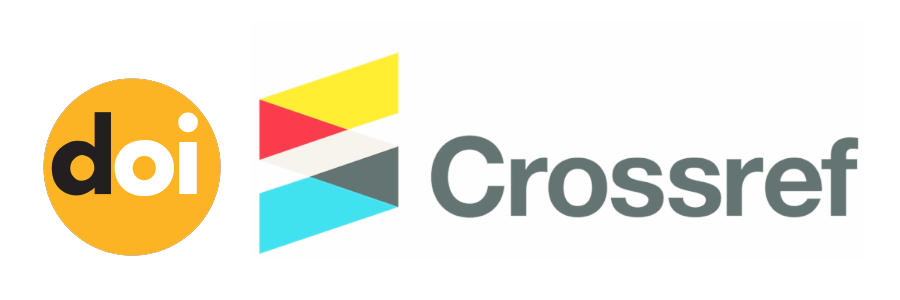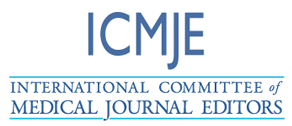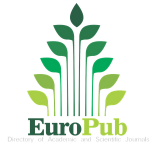Colorectal Cancer Screening Using Immunochemical Faecal Occult Blood test in Perak – A Cross-Sectional Study
DOI:
https://doi.org/10.55677/IJCSMR/V4I6-03/2024Keywords:
.Abstract
Colorectal cancer (CRC) is the second most common cancer in Malaysia (13.5%).1 Immunochemical faecal occult blood test (iFOBT) is known to be a newer, simpler, more sensitive, less expensive and non-invasive approach to CRC screening available.2, 3 The objectives of this study was to describe sociodemographic characteristics, prevalence of positive iFOBT tests and association between positive iFOBT tests, sociodemographic characteristics and colonoscopic findings of detecting CRC in Perak. This was a retrospective cross-sectional study, involving secondary data review of all patients screened for CRC using iFOBT in 96 government health clinics in Perak, from 1/1/2019 until 31/12/2019. Universal sampling method was used. Total of 819 patients were screened. Detailed colonoscopic findings were obtained from database in Perak State Health Department. Mean age was 62.64 (±7.37) years, 50.7% were females and 49.3% were males. Majority of respondents were Malays (57.4%) and iFOBT tests were done in urban government health clinics (67.8%). Out of 819 respondents, 3.1% obtained positive iFOBT results, majority being Malays (1.7%), females (1.6%) with age <65 years old (1.8%). Among the 3.1%, only 4 had pre-cancerous/cancerous lesion colonoscopic findings. Analysis of association between positive iFOBT results, sociodemographic characteristics and colonoscopic findings revealed no significant association between age and gender with colonoscopic findings. There was significant association between ethnicity and colonoscopic findings (p=0.037), however, only 4 tested positive. The detection rate for carcinoma is suboptimal using iFOBT test, probably due to the low numbers screened. Further strengthening of the program is needed to achieve a more favourable outcome.
References
Malaysian National Cancer Registry Report (MNCR) 2012-2016. National Cancer Registry, June 2019. Publication No. 5.
Van Rossum LG, Van Rijn AF, Laheij RJ et al. Cut off value determines the performance of a semi-quantitative immunochemical faecal occult blood test in a colorectal cancer screening programme. Brit J Cancer. 2009;101(8):1274-81.
Zubero MB, Arana-Arri E, Pijoan JI, et al. Population-based colorectal cancer screening: comparison of two faecal occult blood test. Frontiers in Pharmacology. 2013;4.
Karsa LV, Lignini TA, Patnick J, Lambert R, Sauvaget C. The dimensions of the CRC problem. Best Pract Res Clin Gastroenterol. 2010;24:381–396.
Ferlay J, Shin HR, Bray F, Forman D, Mathers C, Parkin DM. Estimates of worldwide burden of cancer in 2008: GLOBOCAN 2008. Int J Cancer. 2008;127(12):2893-917.
Zainal Ariffin O, Zainudin MA, Nor Saleha IT. Malaysia Cancer Statistics: Data and Figure Peninsular Malaysia 2006. Putrjaya, Malaysia: National Cancer Registry, Ministry of Health Malaysia; 2006.
Gerard Lim CC, Yahya H. 3rd Report of the National Cancer Registry, Cancer Incidence in Malaysia. National Cancer Registry, Ministry of Health, Kuala Lumpur, 2006.
Mun CT, Ooi CN, Ray Yee YP, Yan P, Jin YC. Colorectal Cancer Screening Using Immunochemical Fecal Occult Blood Test. Malaysian Journal of Public Health Medicine 2017, Vol. 17 (1): 33-37.
Euler-Chelpin Mv, Brasso K, Lynge E. Determinants of participation in colorectal cancer screening with faecal occult blood testing. J Public Health. 2010;32(3):395- 405.
Chong HY, Roslani AC, Law CW. Colonoscopic Prioritization in Colorectal Carcinoma Screening Using Quantitative Immunochemical Faecal Occult Blood Test: A Pilot Study. Med J Malaysia 2013, Vol 68: 30-33.
Goh KL, Quek KF, Yeo GTS, Hilmi IN, Lee CK, Hasnida N, Aznan M, Kwan KL, Ong KT. Colorectal cancer in Asians: a demographic and anatomic survey in Malaysian patients undergoing colonoscopy. Alimentary pharmacology & therapeutics 2005, vol. 22: 859-64.
American Cancer Society, Multi-Society Task Force, American College of Radiology, American College of Gastroenterology.
World Gastroenterology Organisation, International Digestive Cancer Alliance. Practice Guidelines: Colorectal cancer screening: World Gastroenterology Organisation; 2007.
Saito H. Colorectal cancer screening using immunochemical faecal occult blood testing in Japan. J Med Screen. 2006;13(6):56-7.
National Health Morbidity Survey 2019. Technical Report – Volume 1.
Muhammad Radzi Abu Hassan, Tan Wei Leong, Delarina Frimawati Othman Andu, Habshoh Hat, Nik Raihan Nik Mustapha. Evaluation of a Colorectal Carcinoma Screening Program in Kota Setar and Kuala Muda Districts, Malaysia. Asian Pacific Journal of Cancer Prevention, 2016. Vol. 17: 569-573.
Yasuhiro Oono, Yosuke Iriguchi, Yosuke Doi, Yasuhiro Tomino, Daisuke Kishi, Johji Oda, et al. A retrospective study of immunochemical fecal occult blood testing for colorectal cancer detection. Clinica Chimica Acta 411, Elsevier , 2010: 802–805.
R J C Steele, I Kostourou, P McClements, C Watling, G Libby, D Weller, D H Brewster, R Black, F A Carey and C Fraser. Effect of gender, age and deprivation on key performance indicators in a FOBT-based colorectal screening programme. J Med Screen 2010;17:68 –74.
S M Moss, C Campbell, J Melia, D Coleman, S Smith, R Parker, P Ramsell, J Patnick, D P Weller. Performance measures in three rounds of the English bowel cancer screening pilot. Gut, 2011.
Downloads
Published
Issue
Section
License
Copyright (c) 2024 International Journal of Clinical Science and Medical Research

This work is licensed under a Creative Commons Attribution 4.0 International License.












